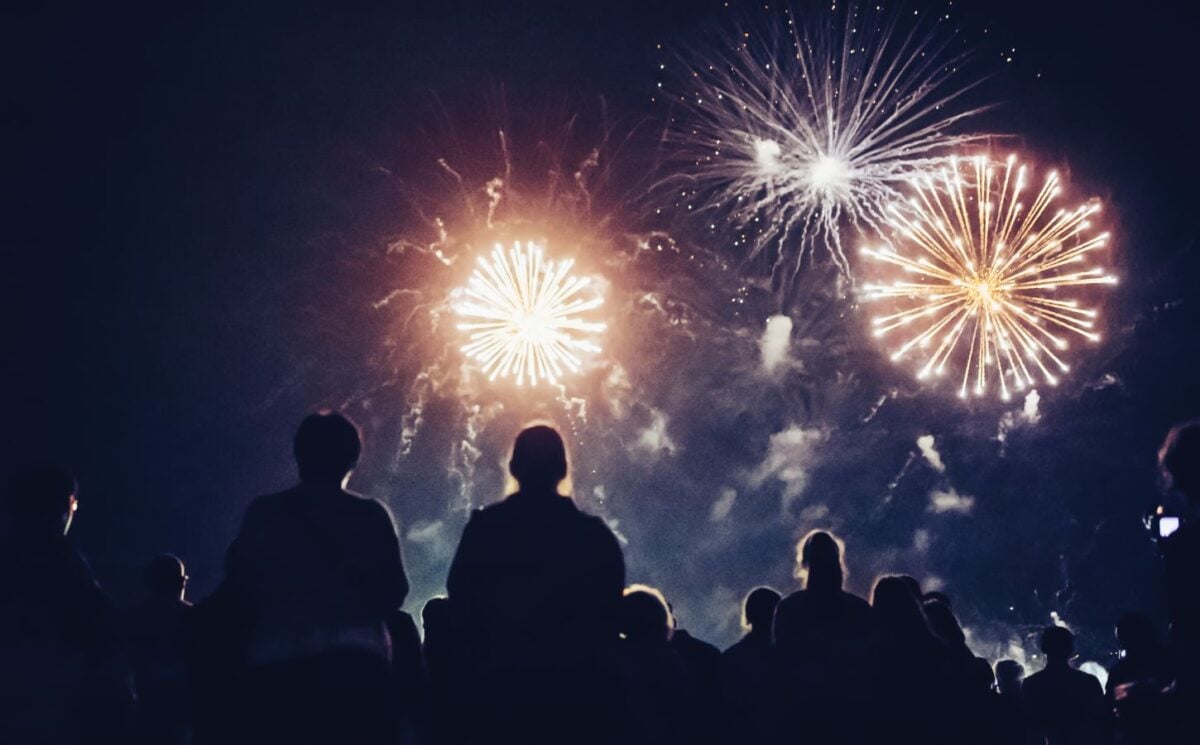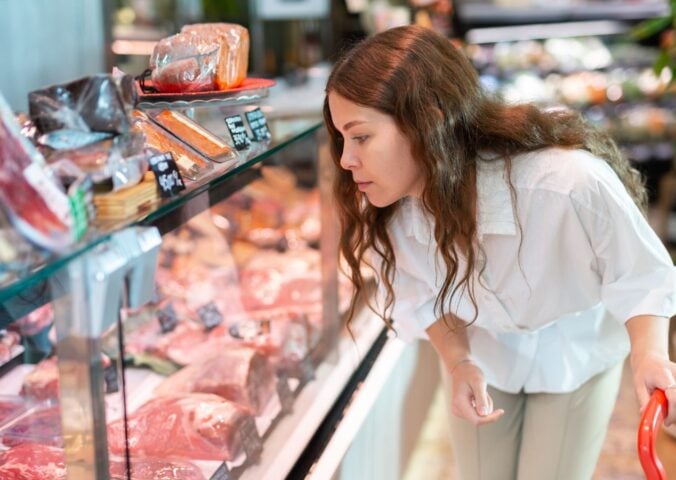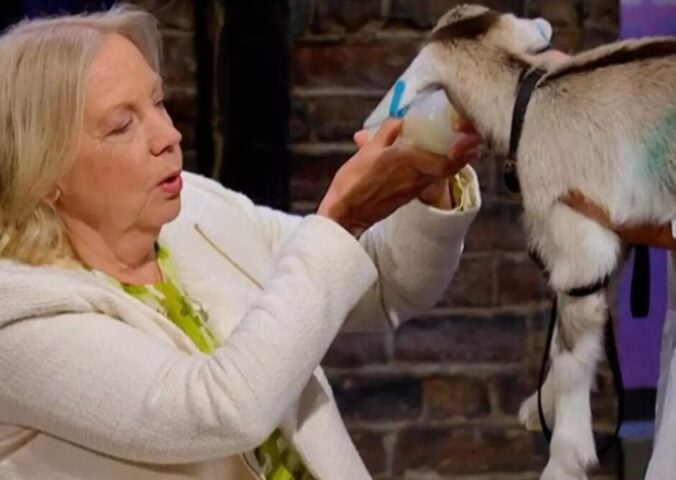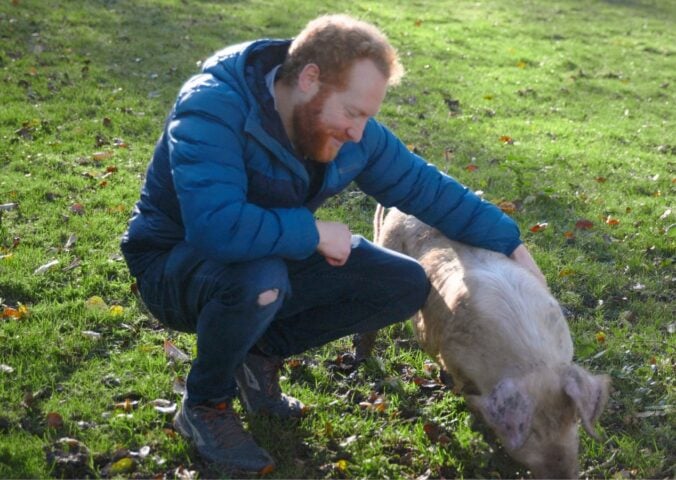On November 4, 2020, a baby zebra named Hope died after running head first into her enclosure walls at Noah’s Ark Farm Zoo near Bristol. According to zoo officials, the loud bangs of nearby fireworks had scared her, and she had tried to run away.
A couple of years prior, a dog living in Manchester died of a heart attack after trying to bury himself under decking to escape the loud bangs. In 2022, a horse named Murphy became so distressed from fireworks that he couldn’t stand up, and he was later put down. Sheeps* have been described as “frightened out of their minds” when fireworks take place in nearby fields. Birds regularly abandon their nests due to the bangs, leaving their eggs at risk from predators.
These kinds of stories are mounting up, and we all hear them after every Bonfire Night. The RSPCA receives hundreds of calls relating to fireworks each year. But fireworks are still in shops, and we’re still going to displays.
“Many people still don’t realize the detrimental impact fireworks can have on all manner of animals,” Elisa Allen, vice president of programmes at PETA tells Plant Based News (PBN). “Countless animals are traumatized by these explosions every year.”
How do fireworks impact animals?

Many animal species have much better hearing than humans. To them, the bangs are considerably louder and more intense. Dogs hear noises around four times sharper than humans. Cats’ hearing can be even more sensitive than dogs’.
The loud bangs provoke a fear response in many animals. Their instincts tell them there is danger, meaning they naturally want to run to a place of safety. Studies have shown that just one negative experience of fireworks can trigger a noise phobia in companion animals, meaning the impact of Bonfire Night can be with them for life. Fireworks also release gunpowder smells that can be hugely unpleasant and confusing to animals, many of whom possess an extremely strong sense of smell.
The UK cares deeply for its companion animals, particularly the millions of dogs and cats who live in our homes, and it’s well-documented that these animals suffer greatly from loud fireworks. UK radio station Classic FM even dedicates a whole show to playing calming music on November 5, which attracts thousands of listeners all over the country.

The scale of suffering that fireworks cause dogs and cats is tremendous. While their trauma must not be minimized, they are often the luckier animals on Bonfire Night. Their guardians may take special precautions to protect them, including drowning out the sounds and blacking out windows. Most other animals have no such protection.
“Many of us who share our lives and homes with these incredible companion animals know what we can do to ease the autumn/winter firework season,” Issy Acosta, campaigner at vegan charity Viva! tells PBN. “But what of the wild animals, those who don’t live inside our homes and are rarely seen, but find their own environment bombarded with these displays of sound, light, and smell?”
How fireworks impact wildlife
The impact that fireworks have on wildlife is rarely discussed. We can’t see these animals at night when displays take place, and therefore don’t witness their reactions and behaviors for ourselves. It’s easy to forget that millions of animals are completely exposed to the bangs on Bonfire Night, many of which take place in or around their habitats.
A wide variety of wild animals are thought to suffer on Bonfire Night, and birds are of particular concern. Most can’t see well in the dark, meaning they are at risk of crashing into trees, power lines, and buildings when taking flight out of fear (which they often do by their thousands). On New Year’s Eve 2010, around 5,000 red-winged blackbirds died during a firework display in Arkansas.
Dr Claudia Wascher is an associate professor of life sciences at Anglia Ruskin University. She conducted one of the first studies into the effect fireworks have on wildlife. She measured the heart rates and body temperature of 20 wild greylag geese near firework displays on New Year’s Eve in Austria. The heart rates of the birds increased by 96 percent, and their body temperatures got hotter, signifying significant distress.
“I think the research really highlights that we certainly need to consider impacts on wildlife more,” Wascher tells PBN. “More research is certainly needed to evaluate the impact of fireworks on wildlife… I would encourage [people] to carefully consider fireworks, avoiding them in areas with a lot of wildlife and encouraging alternatives like drone displays.”
What about farmed animals?
There is minimal research on the effect fireworks have on wildlife, but there’s even less on the impact they have on the animals who make up the vast majority of non-human mammals and birds in the UK.
There are around 1.2 billion land animals kept on farms each year in the UK. Farmed animals already experience unimaginable suffering, being subjected to mutilations, cramped conditions, and diseases. Of the 85 percent of land animals who are kept in factory farms, many of them will be trapped in cages on Bonfire Night, or else crammed in sheds with thousands of other frightened animals.
Farmed animals don’t have Classic FM playing Or a TV to drown out the noise. They don’t have a guardian to hold them and block out the windows, and they don’t have anywhere to escape to.
“These animals, whether they’re pigs, cows, chickens, turkeys or any other farmed animal, will exhibit similar symptoms of fear as your dog and cat would – freezing, panting and bolting,” says Acosta. “Fireworks are inadvertently adding to the long list of suffering for a factory farmed animal.”
Should we move away from fireworks?
In the UK, there are restrictions on fireworks, but, stresses Acosta, these center around minimizing their impact on humans. These include limiting the times they can be used (no later than midnight on Bonfire Night), as well as not allowing them to be set off on the street or in a public place. “These restrictions are there to ensure the public is comfortable and safe,” she says. “But there is no legislation pertaining to the impact fireworks have on animals.
Julie Doorne is part of The Firework Campaign UK, which has been campaigning for reform on firework legislation since 2013. She wants to see fireworks be sold only for those holding licenses for well advertised displays. The campaign also calls for the decibel levels to be reduced.
“The public fall into two categories, those who have no idea of the distress caused and those who know but don’t care,” she tells PBN. “We have been raising awareness for over 10 years now and every MP will have received emails detailing the problems of their constituents. They cannot deny they know about the issues, but are unwilling to do anything to help.”
Some groups are calling for fireworks as we know them to be eliminated all together. “PETA supports a ban on conventional fireworks displays and encourages organisers to explore other options like silent fireworks or laser light shows, which many cities are already using,” Allen says. “They offer all of the flash but none of the fright of conventional fireworks displays.”
Should vegans focus more on fireworks?
Despite their huge costs, the issue of fireworks hasn’t tended to be a significant part of the vegan and animal rights conversations. Veganism is a movement seeking to end animal exploitation, and many vegans want to stop all use of animals by humans with regards to food, fashion, entertainment, experimentation, and more. The number of animals killed by humans each year is in the trillions, with many suffering brutal lives and painful deaths. It’s arguable, therefore, that the issue of fireworks hasn’t been seen as a priority for most vegans, many of whom, according to Acosta, may not be aware of the huge impact they have.
“Talking more about the impact of fireworks on all animals is most definitely needed,” she says. “The question I come back to time and time again is this – is any human celebration worth the suffering of other living, sentient beings?
You can sign the petition urging the UK government to review fireworks legislation here.
*While the English language typically refers to multiple sheeps as “sheep,” we have chosen to use “sheeps” to emphasize their individuality





